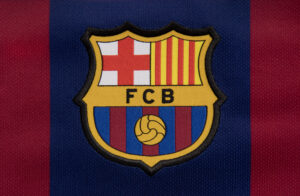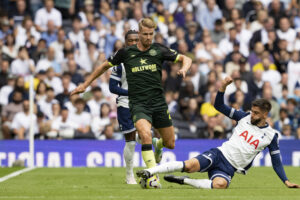Yugoslavia were banned from Euro 1992 mere days before the tournament was scheduled to be played, due to its currently ongoing civil war. But what if they weren’t? How would they have performed?
Yugoslavia were one of the best teams in Europe at the time, being ranked 7th in the world and winning a qualification group ahead of eventual champions Denmark. They also did well at the 1990 World Cup, beating Spain in the last 16 and only succumbing to penalties against Argentina in the quarter-finals. On top of this, many of Yugoslavia’s players played an instrumental part in Red Star Belgrade’s European Cup triumph in 1991. Yugoslavia would have been genuine contenders and from a footballing point of view, it’s a shame that they were banned.
Yugoslavia Could Have Gone Far at Euro 1992
Hypothetical Clashes With England and Sweden
When it comes to examining how Yugoslavia would’ve performed at Euro ‘92, they’ll simply be placed in the same position they were in prior to being banned – Group A. The Brazilians of Europe will replace Denmark and play the same matches as the Danes did in the real Euro 1992 tournament.
England drew 0-0 with both Denmark and France in the real Euro 1992, so there’s a high probability that a boring scoreline would make a return in this hypothetical match against Yugoslavia. Their comparable Elo ratings further reflect this, and this is also true when comparing Yugoslavia with all other teams in this group.
Hosts Sweden exceeded expectations that summer by winning a highly competitive group. One of the teams they defeated was eventual champions Denmark, who finished behind Yugoslavia in their qualification group. It was a close encounter decided by a single Tomas Brolin goal. Yugoslavia was marginally better than Denmark back then. The Brazilians of Europe were slightly better than the Blue and Yellows on paper, but Sweden’s home advantage would’ve given them the edge necessary to compete with Yugoslavia. A draw with Sweden is more probable than a win in either direction.
Clinching a Spot in the Semi-Finals
France had a disappointing winless tournament, despite sweeping their qualification group. But it is not unreasonable to think that Le Bleus could have mustered a performance against a strong Yugoslav side. A draw is probably the most likely outcome, with a Yugoslav win also being well within the realm of possibility.
If Yugoslavia draws all three group stage matches in accordance with these predictions, they would have to be split from France by the drawing of lots to determine who would advance as the runner-up. These predictions are only on average, though. What’s more likely is that Yugoslavia probably would have won at least one of these matches. They were just that good and would’ve presumably advanced to the semi-finals ahead of France and England, but behind Sweden. The Swedes’ prowess on home soil in the group stage that summer makes them the least likely to have lost to Yugoslavia in this timeline. It’s more plausible that Yugoslavia would have defeated England or France, though by a small margin.
Yugoslavia’s Third Euro Final
Yugoslavia would face the Netherlands in the semi-finals. A good Dutch side that defeated Germany 3-1 in the group stage. The Dutch also reigned supreme against Yugoslavia in a friendly a few months prior. That bodes well for Oranje. However, it’s worth noting they had home advantage and friendlies should be taken with a grain of salt. Also, it’s not uncommon for teams who do well in the group stage to flop in the knockout stage, as the Netherlands did against Denmark in ’92.
In contrast, Yugoslavia proved the opposite at the 1990 World Cup where they defeated Spain in the last 16 and only lost to eventual finalists Argentina on penalties in the quarter-finals. Two sides that were on par with this Dutch team. Many people would intuitively think the Netherlands is better than Yugoslavia, but this would be an even affair between two solid sides. Their Elo ratings also suggest this. Yugoslavia should be able to beat the Netherlands on the day after extra time or on penalties, placing them in the final against Germany.
Champions of Europe?
Yugoslavia has so far followed the exact trajectory of Denmark. One might instantly grant them a win against Germany in this hypothetical final on those grounds as a result. But football is not an exact science. It’s more complicated than that. The stars aligned for Denmark in a way that makes it difficult to assess their performance, even though the Red and Whites deservedly won.
They scored two great goals that were quite rare and difficult. Low in terms of “expected goals”. Peter Schmeichel had one of the games of his life. Denmark had greater support from the stands, despite the stereotype that Swedes and Danes hate each other. Also, they diligently utilized the fact that there was no back pass rule yet. If Denmark and Germany played this final 100 times, Germany would probably win most of them. The point is that Yugoslavia won’t necessarily beat Germany just because Denmark did so in 1992. Germany should be regarded as slight favourites against Yugoslavia in this hypothetical final.
Additionally, at the 1990 World Cup group stage, Yugoslavia faced off versus West Germany and lost 4-1. This was at a time when the Balkan side was ranked 4th in the world, even higher than in 1992. As a result, it’s not unreasonable to take that match into account, even though it was played two years earlier. Tragically, this would be Yugoslavia’s third loss in a Euro final. To reiterate, Yugoslavia definitely could’ve won on the day, but the probability of a German triumph is higher.
Main Photo






